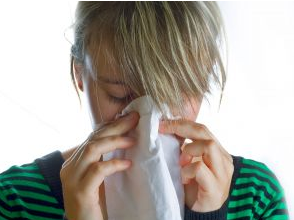
Average family health insurance premiums in the US have fallen for the first time in seven years.
The average premium for a family in the United States in 2012 was $412 per month, a decrease of 0.5 percent from 2011. The results come from the annual report, The Costs and Benefits of Individual and Family Health Insurance, released by eHealth Inc. America’s largest private health insurer.
The report also revealed individuals paid an average of $190 per month on health insurance premiums, an increase of 3.8 percent. The average annual deductible for individually-purchased health insurance plans in 2012 was $3,079 for individuals and $4,079 for families.

America’s leading group of obstetricians and gynaecologists has recommended the contraceptive pill become available OTC.
In order to make birth control more accessible, the American College of Obstetricians and Gynecologists (ACOG) last week recommended it should be available over the counter (OTC). The contraceptive pill and other forms of hormonal contraception are currently only available with a prescription.
One of the major benefits of more readily available birth control would be to lower the unintended birth rate in the USA. Currently, 50 percent of pregnancies in the U.S. are unplanned. Reproductive control is important, not only for women’s autonomy, but also the health of women and their children. Studies show when a women actively chooses to get pregnant, her health and that of her child is improved.

Expats spending time with family this holiday season should take the opportunity to find out about their family medical history.
Thanksgiving is one of America’s biggest annual holidays and marks the start of the holiday season. Many expats will have already made plans to travel home or receive loved ones at some point over the Christmas period. Health experts are urging families to use these gatherings to discuss family medical histories.
Heart disease, cancer, diabetes, sickle cell anaemia and other common diseases can run in families, said Dr LaMar Hasbrouck, director of the Illinois Department of Public Health, told the State Journal Register.

For young women buying protection products, the price rise may be higher than expected after gender neutral pricing comes into effect.
The protection industry’s first look at the new gender neutral pricing suggests premiums may rise much more than initially thought. PruProtect has this week released pricing for the whole of life cover products ahead of the EU gender directive.
Typically women pay less for protection such as life insurance as they live longer on average than men, so will claim on the policy later than men. This means they will pay more in premiums throughout their life. The directive prohibits the pricing of protection products according to gender, in the past prices for men and women varied. The new regulations come into effect on December 21.

A whooping cough outbreak which has killed 10 babies in the UK highlights the need for pregnant mothers to get vaccinated.
The UK is seeing its worst whooping cough outbreak for decades with ten babies killed and over 6,121 cases reported this year. Whooping cough is highly contagious bacterial infection passed from person-to-person by droplets in the air from coughing or sneezing. Newborn babies are most at risk of death from the disease.
Whooping cough usually starts with mild symptoms which develop into the intense coughing bouts with the distinctive “whooping” sound which give the disease its name. Globally it affects 16 million people a year with 95% of cases found in developing countries. It is still a major public health concern however, even in countries with high vaccination rates.

Which countries are the best for raising children abroad?
According the recently released HSBC Expat Explorer survey, Hong Kong is the healthiest place to raise children. The Raising Children Abroad league table asks expat parents about various aspects of raising children abroad. The health categories include; safety, spending more time outdoors, watching less TV, playing more sports, eating less junk food and spending less time on video games.
When focussing on health and safety the top three countries are:
- Hong Kong
- Australia
- Canada
Of the expat parents surveyed, 91 percent said they felt the safety of their children had improved since moving to Hong Kong. These results are far above any other country and above the global average of 60 percent of parents saying safety had improved since relocating.

The world’s first newborn twin medical insurance has been launched. It targets people who are not eligible for the U.S national insurance.
Newborn twins medical insurance policy, from New Life Agency, is the first insurance of its type in the world. This global insurance covers the risk of premature birth and medical complications than can come from a multiple birth.
“There has been a definite need for twins coverage in the marketplace as more and more global parents choose twin births as a means to expand their families,” said Gary Hickox, CEO of New Life Agency, in a statement. “We listened to the marketplace and have developed a specific insurance targeted to meeting the needs of those parents and their babies worldwide.”

Moving back home after a spell abroad can be just as tough on children as moving in the first place.
There is a lot of advice around on how to help your children adjust to moving abroad. Schooling, making friends, leaving family behind, learning a new language etc. But, what happens when you decide to move back home? Repatriation, or returning home, can be a struggle for children, especially those who feel closer to their adopted country than their home country.
Children who have spent the bulk of their childhood abroad won’t have the same ties to their birth country as parents who grew up there. Repatriation can be as stressful as moving abroad in the first place, and parents need to be aware of the effects of reverse culture shock on children.

A study shows exposure to mercury in the womb is linked to ADHD in children. Should pregnant women continue to eat fish?
A new study has shown children born to women who are exposed to low levels of mercury during pregnancy have a higher risk of developing ADHD-related disorders. On the flip side, women who eat fish during pregnancy have a lower risk of giving birth to a child with these disorders.
ADHD is one of the most common neurodevelopmental disorders of childhood and affects 8 percent to 12 percent of children worldwide, although its cause is not well understood. Non-occupational methylmercury exposure comes primarily from eating fish. The U.S. Food and Drug Administration has recommended pregnant women eat no more than two, six-ounce servings of fish per week.

Major insurers are announcing how they will deal with gender neutral pricing which comes into effect in December.
As the EU gender directive deadline approaches, major insurers have begun to reveal their plans for managing business in the run up to the deadline. The gender directive comes into effect on 21 December 2012. It will prevent insurers from pricing protection plans differently for men and women.
Zurich, LV= and Aviva have all announced their plans for handling business in the lead up to the December deadline. LV= and Aviva have said they will honour gender specific pricing up to close of business on 20 December, providing applications meet certain criteria.